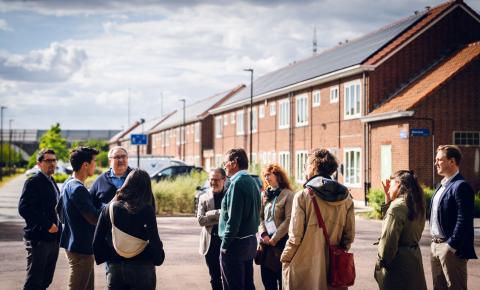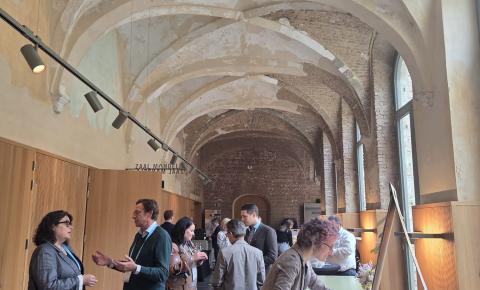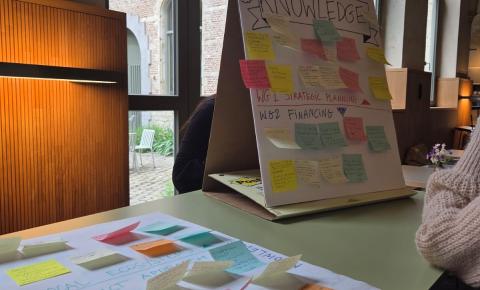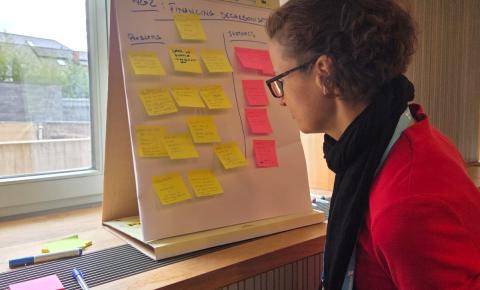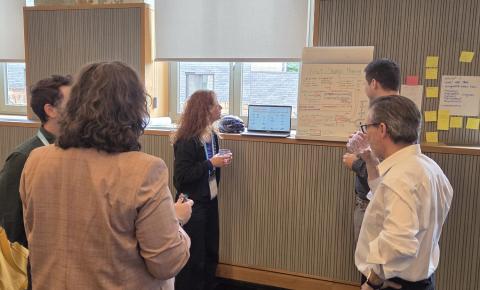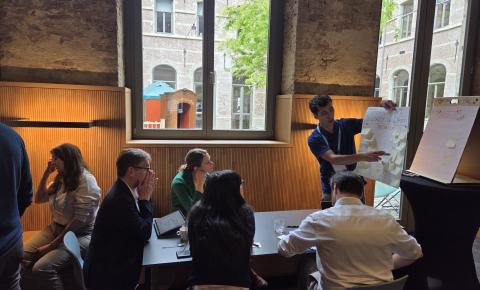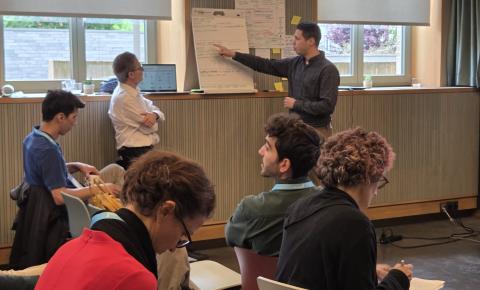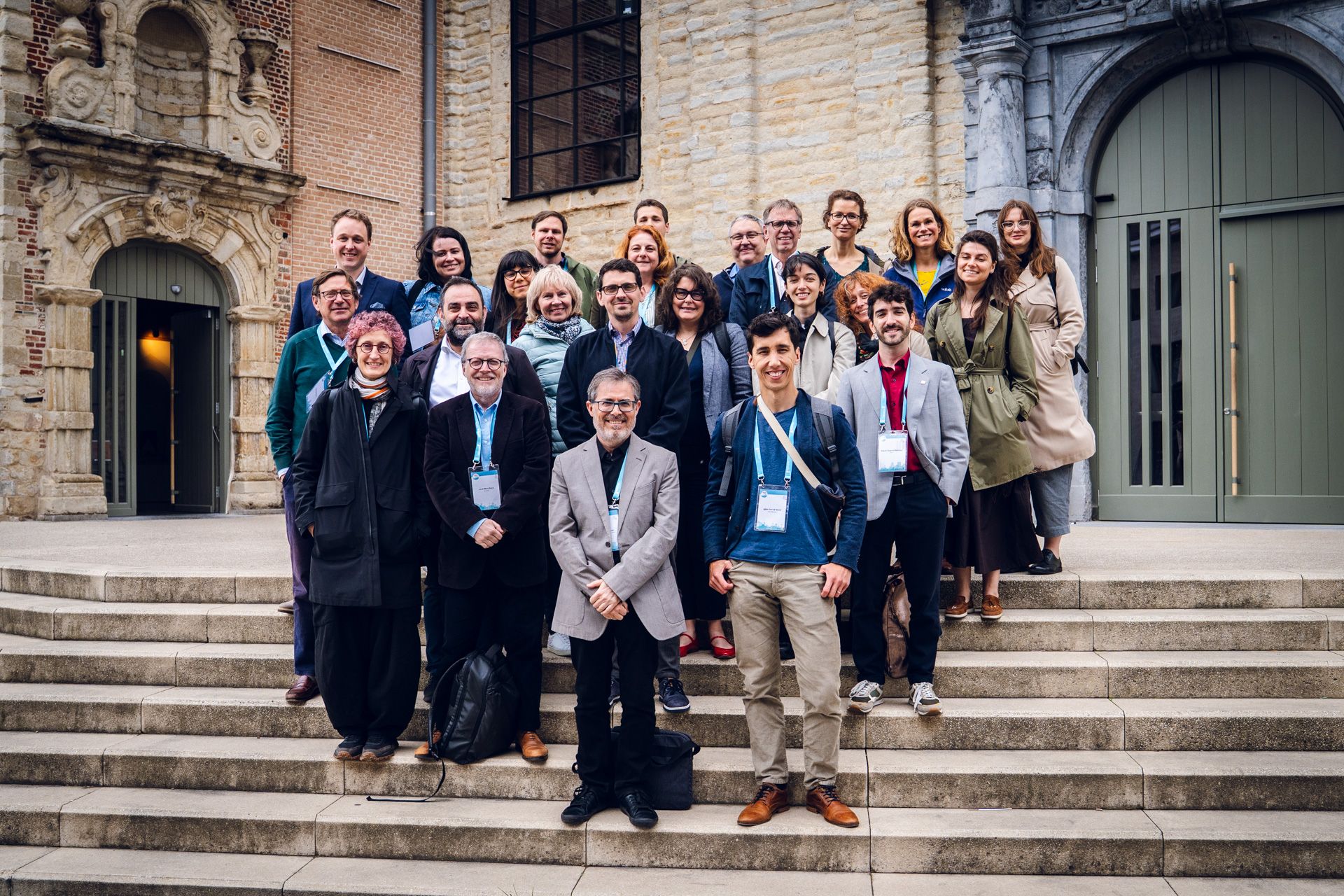
Strengthening Collaboration: Building Decarbonisation Partnership Meets in Mechelen
The meeting was hosted by the coordinators of the partnership, the City of Mechelen, at the historic Het Predikheren, now a repurposed city library and cultural hub. The two-day event offered a dynamic space for knowledge exchange and strategic planning. Participants worked on understanding each other’s experiences, aligning on common definitions, refining the themes of each working group, and agreeing on tools and methods to enhance collaboration .
A ground-up start: shared definitions and local examples
The first day focused on building mutual understanding and setting a foundation.
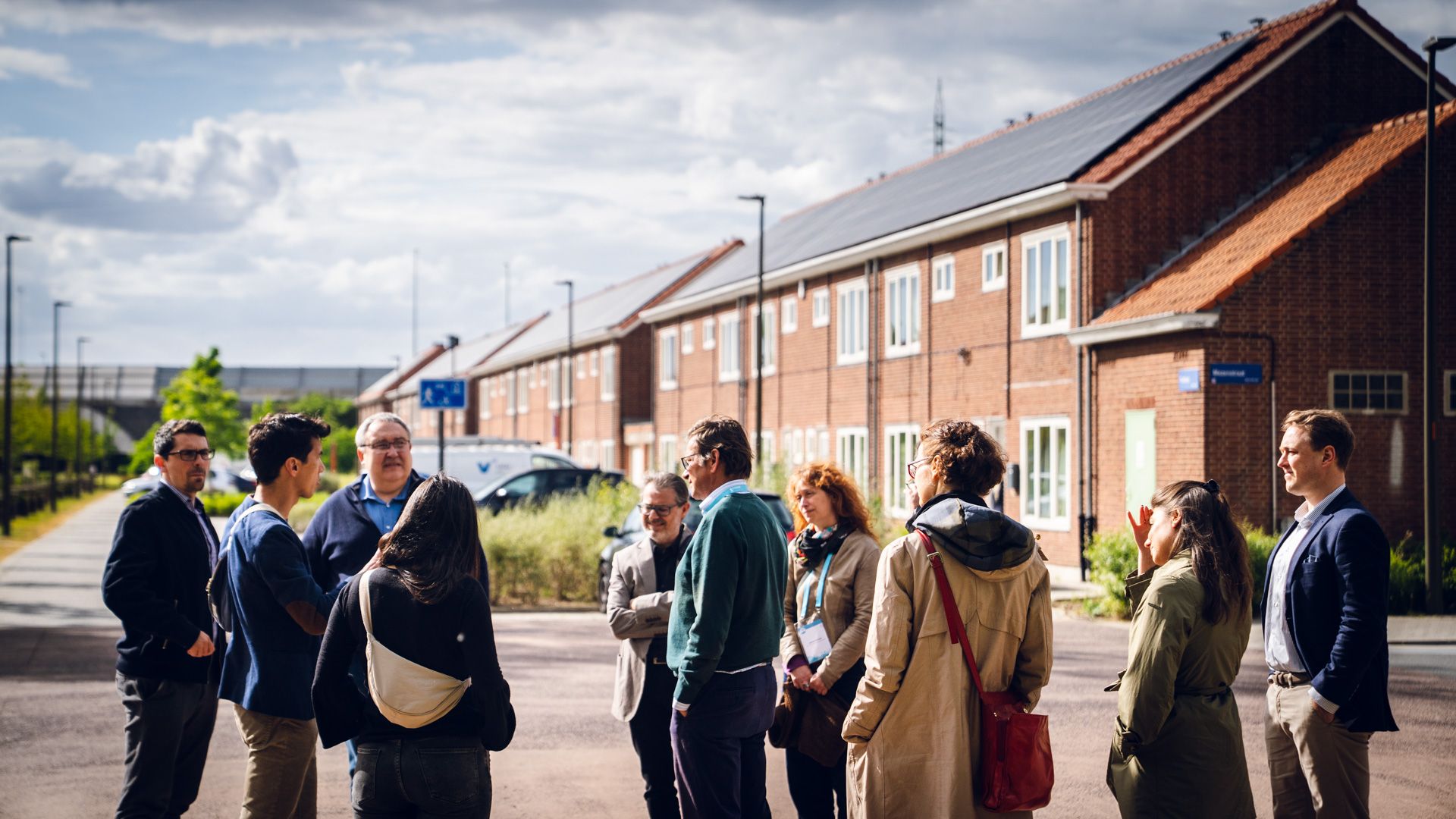
After a warm welcome from the City of Mechelen, participants engaged in partner introductions and a session dedicated to aligning core definitions related to building decarbonisation.
These discussions set the tone for shared language and a common direction. The afternoon included optional guided tours of Mechelen’s leading local projects, such as the Beguinage’s feasibility study for a heat network, the Otterbeek energy community and Keerdok's 5th generation heat network. These hands-on visits highlighted practical examples of building decarbonisation and local innovation in action.
Joint position paper: EU Agenda for Cities
Another key milestone of the first day was the submission of a joint position paper to the EU Call for Feedback on the new EU Agenda for Cities. Key recommendations proposed by the Building Decarbonisation Partnership included:
-
Multilevel governance must become a standard operating principle in the EU agenda.
-
The EU Agenda for Cities should encourage cross-border partnerships and regional cooperation among cities and towns.
-
Better regulation & local capacity development via strategic planning at municipal level.
-
Better funding via accessible action grants and large-scale investment programmes.
-
Multi-sectoral collaboration and local eco-systems.
-
District and neighbourhood approaches as local responses to the global challenge of building decarbonisation.
-
Need for linking and streamlining of the EU Agenda for Cities with other, ongoing urban initiatives.
Shaping the partnership’s future
Day two transitioned from context-setting to collaborative action. Morning sessions showcased climate district initiatives in Flanders, presented by Anneloes van Noordt (Department of Environment and Spatial Development, Flanders). The second presentation included Mechelen’s own experience in heat networks and condominium renovations, presented by Ighor Van de Vyver (City of Mechelen).
Participants then broke into four thematic groups, representing the four thematic areas of the Building Decarbonisation Partnership: Strategic Planning at Municipal Level, Financing Building Decarbonisation, Collaboration for Local Ecosystems, Implementing Projects at District/Collective Level.
Through targeted exercises designed and led by Green Building Council España, they refined the subtopics of each thematic area, the expected impacts and outputs, which could be translated into potential future actions. The outcomes of the exercises will feed directly into the finalisation of the Orientation Paper, which is expected to be completed by the end of July.
Building momentum and accountability
The final afternoon sessions, led by the European Urban Initiative, City of Mechelen and Green Building Council España, introduced working methods, outlined roles and responsibilities, and set timelines for upcoming deliverables. A "free podium" allowed partners to present initiatives and ideas to the wider group, ensuring a participatory and inclusive close to the event. The meeting concluded with clear momentum and a strengthened network of actors committed to building decarbonisation. The partners’ continued dedication to advancing climate-neutral and resilient buildings has also been recognised beyond the Partnership:
-
The Energy Community project Otterbeek in the City of Mechelen has been nominated for the EUSEW2025 award (category local energy action).
-
The City of Vaasa has been awarded €4.3 million in funding for sustainable development, by the EUI Innovative Action programme.
Looking forward, the partnership will continue to work on its Orientation Paper, gathering input from all partners involved, which will be presented in September during the upcoming Directors General Meeting for Urban Matters (DGUM).
